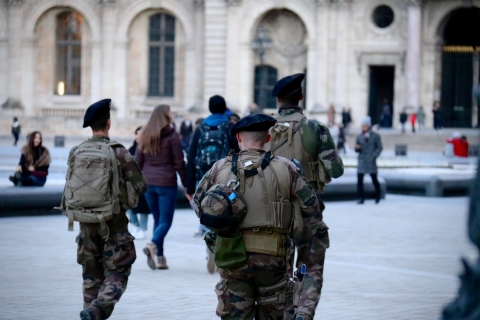
The military has been at the forefront of many everyday objects and technologies – two-way radio, sonar, duct tape, sanitary napkins and more.
Now, it is looking at whether and by how much soldiers and civilian bodies can be trained to cope with wearing loaded backpacks - the results could reach far beyond the battlefield.
A team at the University of Portsmouth, led by pulmonary physiology expert, Dr Mitch Lomax, has been awarded a contract by the Human and Social Science Research (HSSRC) Capability Framework to study the response of trained and untrained bodies under load. Dr Lomax , along with colleagues Dr Gemma Milligan and Professor Michael Tipton will be working with the Defence Science and Technology Laboratory (Dstl).
A loaded torso restricts breathing, which is likely to become more rapid and shallow, raising the likelihood of breathing muscle fatigue.
Dr Mitch Lomax, Senior lecturer
The team will examine whether there are any differences in the abilities of civilians and soldiers to find out if specialised training would be of value.
Dr Lomax said: “A loaded torso restricts breathing, which is likely to become more rapid and shallow, raising the likelihood of breathing muscle fatigue.”
Such changes might pose a problem for anyone who carries a backpack but are likely to be serious for military personnel who carry heavy (in excess of 25 kg) loads on a regular basis.
Dr Lomax added: “Infantry soldiers are often required to undertake long marches with very heavy backpacks and body armour. This is often followed by a military specific task such as getting to a specified position in the shortest possible time or making quick and crucial decisions as to who is friend and who is foe before engaging in fire.”
Their research will explore current training strategies to identify if the effectiveness and efficiency of military training can be enhanced.
